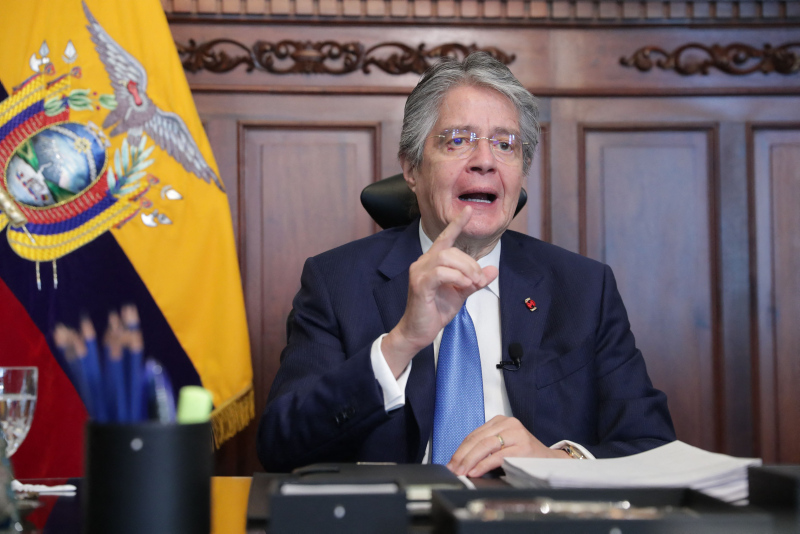Ecuador's government and the country's main Indigenous group reached an agreement Thursday to end 18 days of often-violent strikes that had virtually paralyzed the country.
The deal, which includes a decrease in the price of fuel and other concessions, was signed by Government Minister Francisco Jiménez, Indigenous leader Leonidas Iza and the head of the Episcopal Conference, Monsignor Luis Cabrera, who acted as mediator.
The agreement sets out that gasoline prices will decrease 15 cents to $2.40 per gallon and diesel prices will also decline the same amount, from $1.90 per gallon to $1.75.
The deal also sets limits to the expansion of oil exploration areas and prohibits mining activity in protected areas, national parks and water sources.
The government now has 90 days to deliver solutions to the demands of the Indigenous group.
"Social peace will only be able to be achieved, hopefully soon, through dialogue with particular attention paid to marginalized communities, but always respecting everyone's rights," Cabrera said.

Protests organized by indigenous organization CONAIE erupted across Ecuador on June 13, with demonstrators' demands including lower fuel prices and limits to further expansion of the mining and oil industries.
The protests also led to food and medicine shortages and severely impacted the oil industry, Ecuador's main source of income, costing the country some $213 million, according to energy ministry figures.
"We have achieved the supreme value to which we all aspire: peace in our country," Lasso said in a message on Twitter that celebrated the end of the protests.
As part of the deal, the government agreed to again lower fuel costs, including on the most used gasoline and diesel, by an extra 5 cents, following previous cuts of 10 cents per gallon.
The total price cut of 15 cents on both fuels will cost some $340 million a year, the finance ministry said.
Lasso also offered to scrap a decree for oil projects and reform a similar one for mining projects. The reform will ensure communities have the right to be consulted on such developments.
"We're going to keep fighting," said CONAIE leader Leonidas Iza, even though protests would be suspended. Some leaders disagreed over certain points of the deal.
Lasso's adversarial relationship with Ecuador's national assembly deteriorated during the protests. Opposition lawmakers pushed a vote to oust him earlier this week, which he narrowly survived.
Protesters complained of police violence during the demonstrations and the government reported scores of injured security forces members, while one soldier was killed during an attack on a convoy carrying fuel to Ecuador's largest oil field.
Ecuador's Energy Minister Xavier Vera said on Thursday the country expected to begin recovering oil wells closed during the protests, aiming to return the majority to production within a month.
Ecuador's pre-crisis oil production of some 500,000 barrels per day (bpd) had fallen to 234,310 bpd as of Wednesday after more than 1,200 wells were shut.